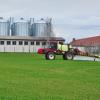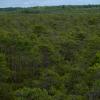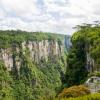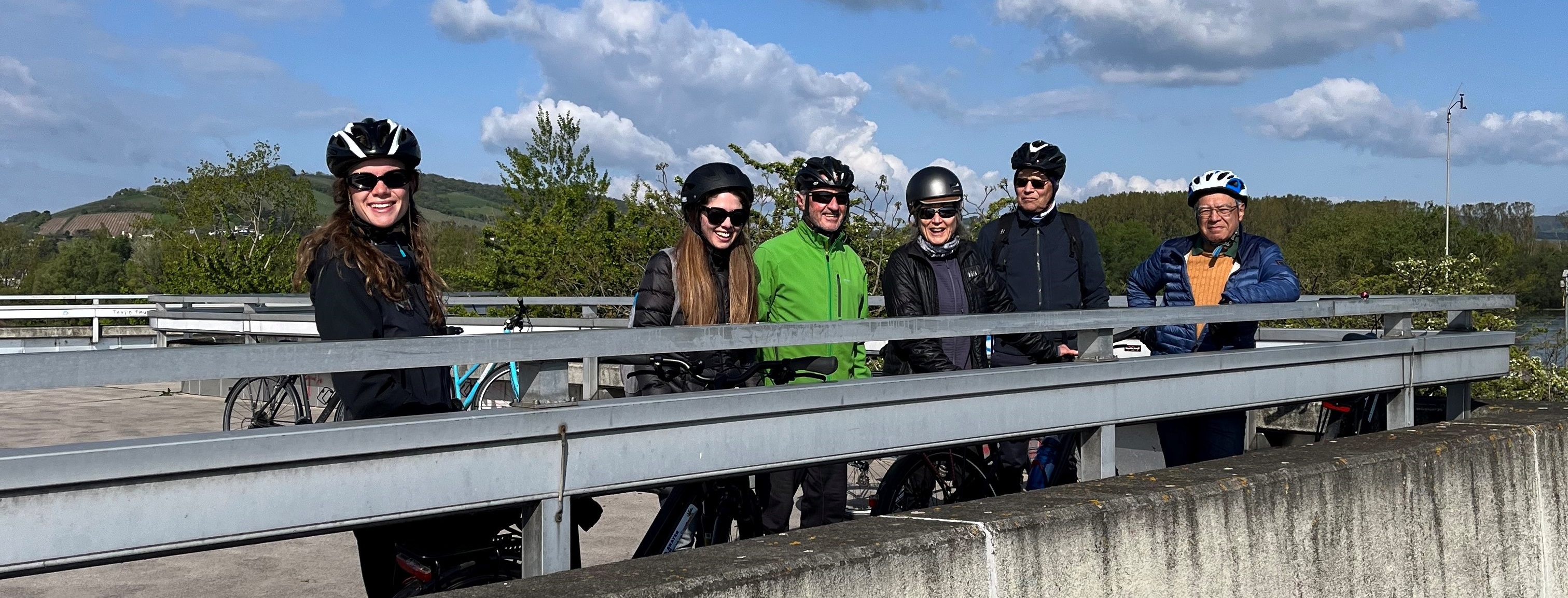
Researchers from the Norwegian Geotechnical Institute (NGI) visited IIASA on 24 April to finalize a five-year collaboration on nature-based solutions for meeting climate and biodiversity targets, and to plan a proposal to continue their collaboration.
NGI and IIASA have worked closely together on the NGI-led EU Horizon project, PHUSICOS – “according to nature in Greek”. The project has successfully implemented on-the-ground projects across Europe to demonstrate how nature-based solutions (NBS) provide robust, sustainable and cost-effective measures for reducing the risk of extreme weather events in rural mountain landscapes, and at the same time contribute to climate and biodiversity targets. IIASA, together with the University of Geneva, has explored governance and financing arrangements – including a focus on equity – that can enable NBS by carrying out case studies in Europe and China along with an exploration of NBS enablers and barriers through interviews, literature meta-analyses, and a policy-business forum. This has resulted in innovative suggestions, yet grounded in current legislation and precedence, for policy reform to close the large NBS financing gap.
The NGI visitors included Amy Oen, who has led the PHUSICOS project, along with Farrokh Nadin, Anders Solheim, Kjersti Gisnås, Vittoria Capobianco, and Amanda Johansen Di Biagio. The IIASA visit followed from their participation, along with JoAnne Linnerooth-Bayer, at the EGU 2023 conference in Vienna, where they presented PHUSICOS research on NBS. This was a good opportunity for Linnerooth-Bayer to lead the Norwegian delegation on a bike tour of Vienna’s famed (hybrid) NBS for flood control – the Danube Island.
If the proposal is successful, the collaboration on nature-based solutions will continue, especially as NBS can contribute to climate-proofing critical infrastructure. For this, the IIASA-NGI meeting was joined virtually by potential partners with critical-infrastructure cases across Europe, including Romania, Greece, Italy, Spain, Norway and Sweden.
Please see some of the most recent publications below:
Martin, J.G.C. , Scolobig, A., Linnerooth-Bayer, J., Liu, W.
, & Balsiger, J. (2021). Catalyzing Innovation: Governance Enablers of Nature-Based Solutions. Sustainability 13 (4) e1971. 10.3390/su13041971.
Calliari, E., Castellari, S., Davis, M., Linnerooth-Bayer, J., Martin, J.G.C. , Mysiak, J., Pastor, T., Ramieri, E., Scolobig, A., Sterk, M. et al. (2022). Building climate resilience through nature-based solutions in Europe: A review of enabling knowledge, finance and governance frameworks. Climate Risk Management 37, e100450. 10.1016/j.crm.2022.100450.
Scolobig A, Linnerooth-Bayer, J., Pelling, M., Martin, J.G.C., Deubelli, T.M., Liu, W., Oen, A. (2023). Transformative adaptation through nature‑based solutions: a comparative case study analysis in China, Italy, and Germany. Regional Environmental Change 23:69 https://doi.org/10.1007/s10113-023-02066-7
News

30 May 2024
New method could significantly reduce agricultural greenhouse gas emissions

07 May 2024
TaigaClimate Project Meeting 2024

27 March 2023


